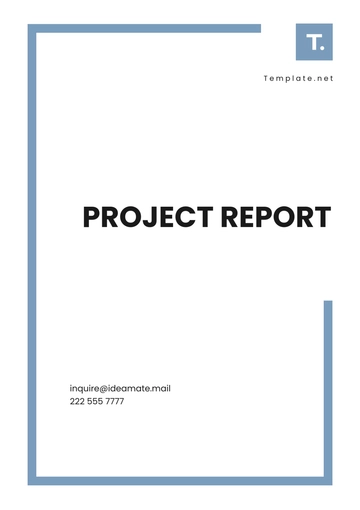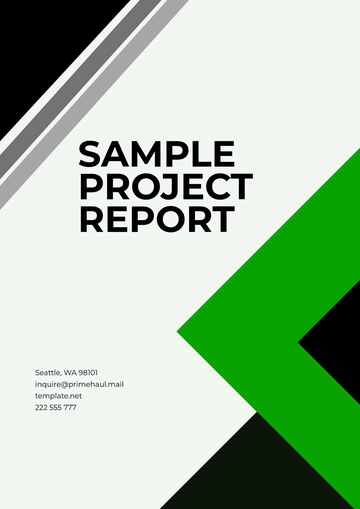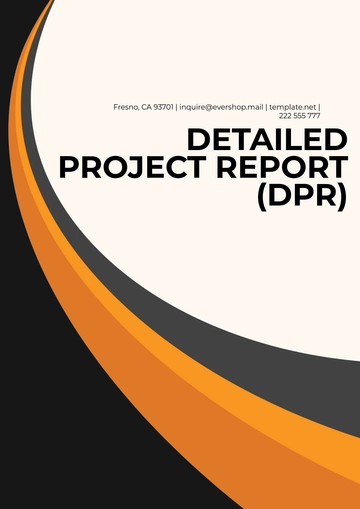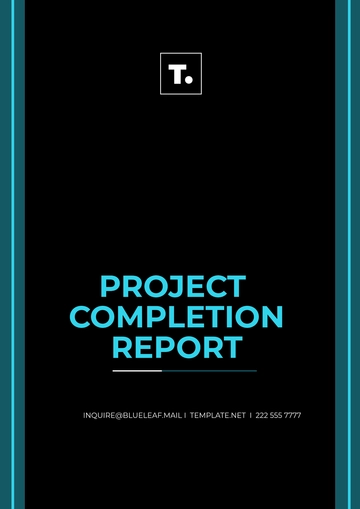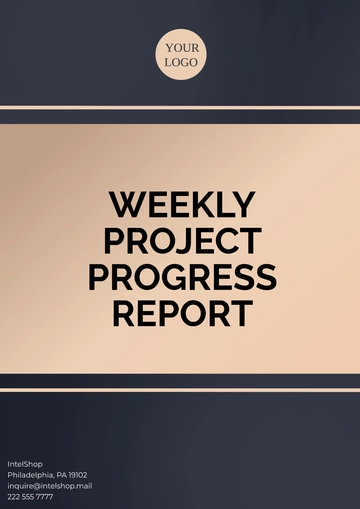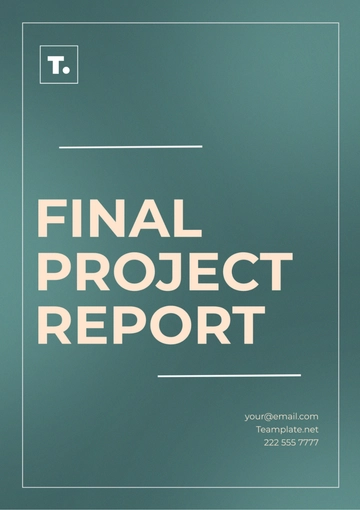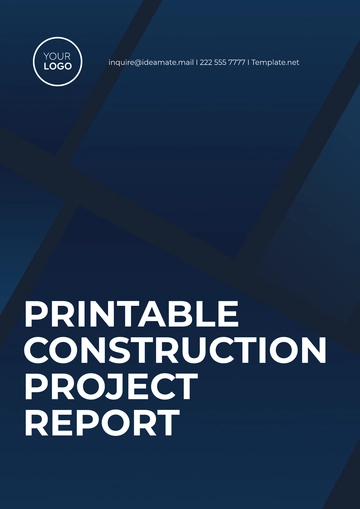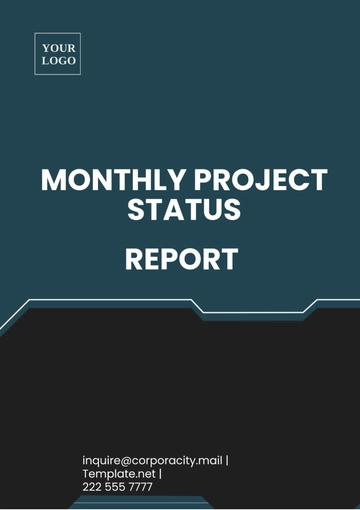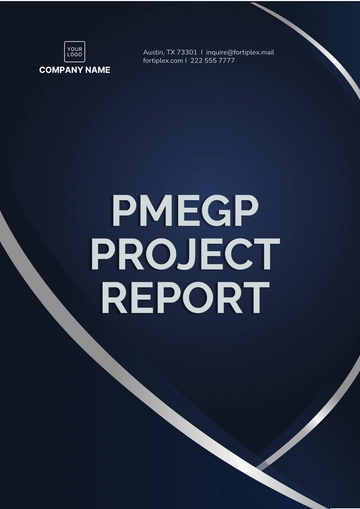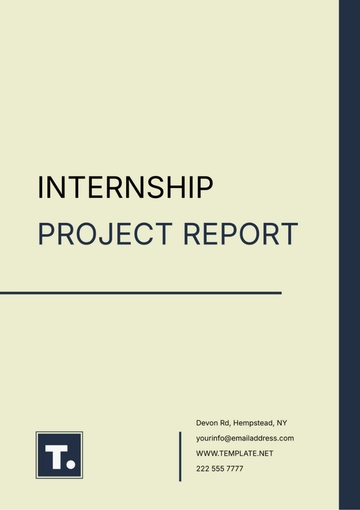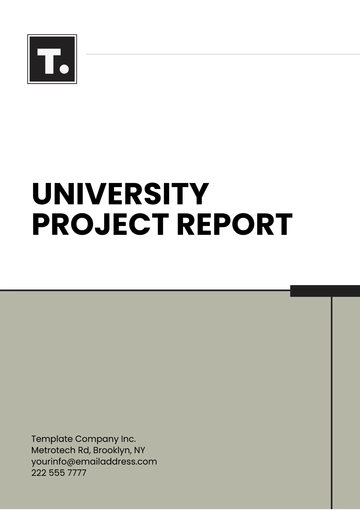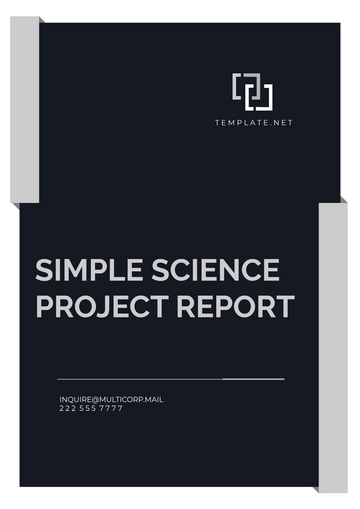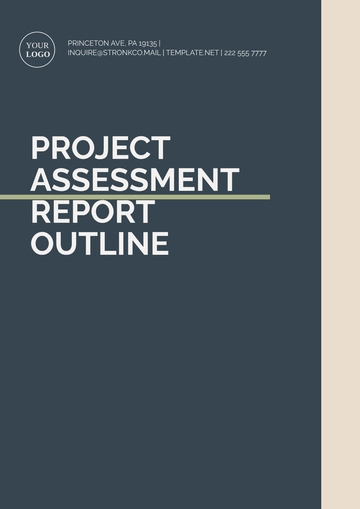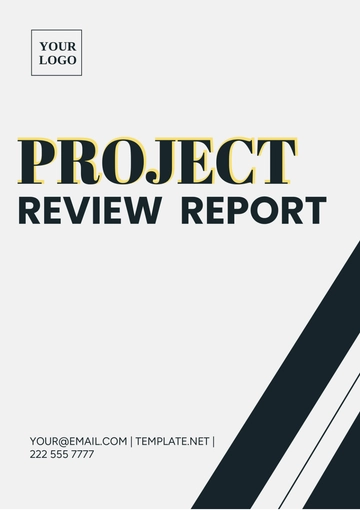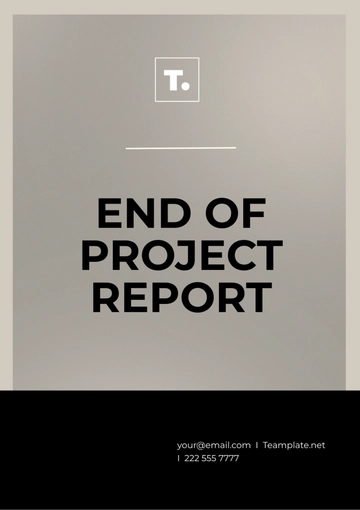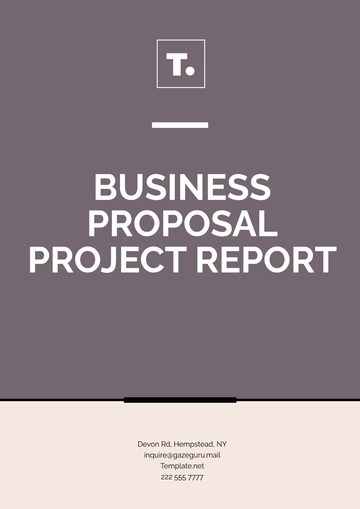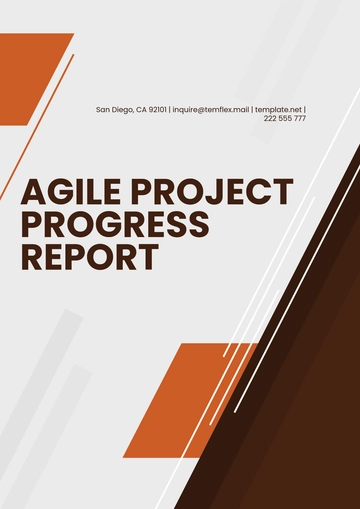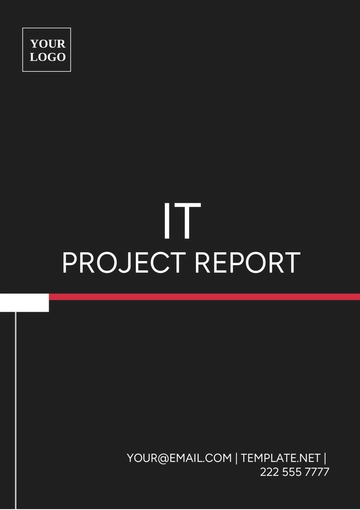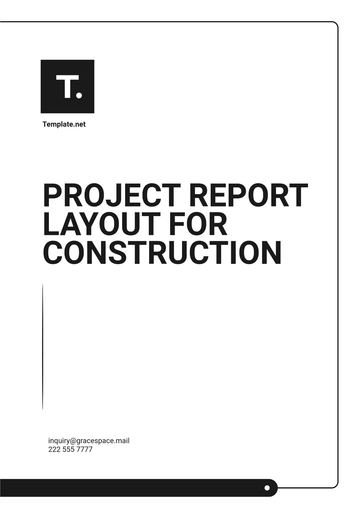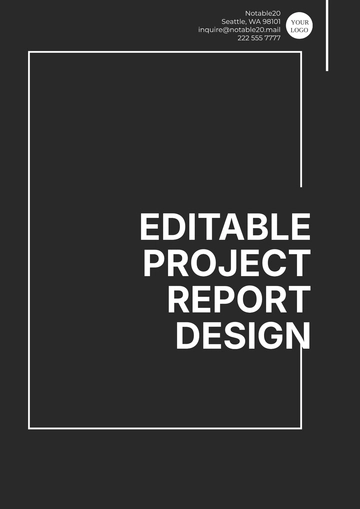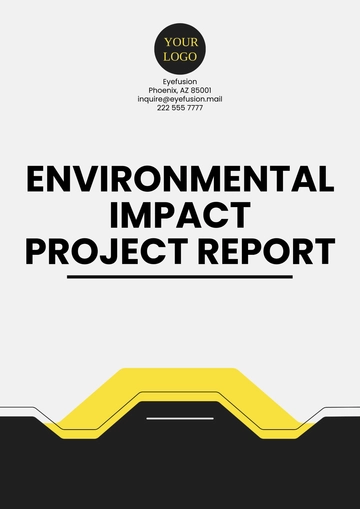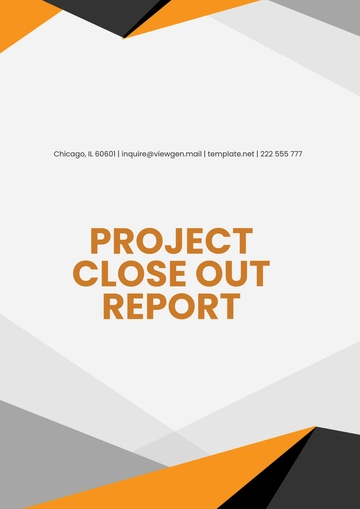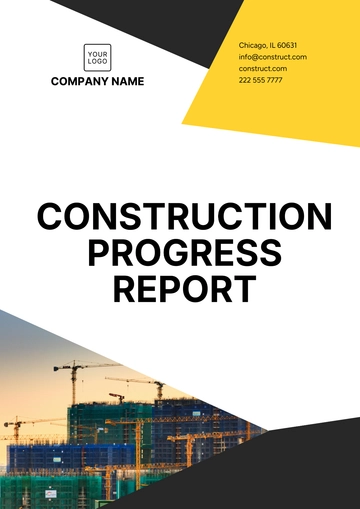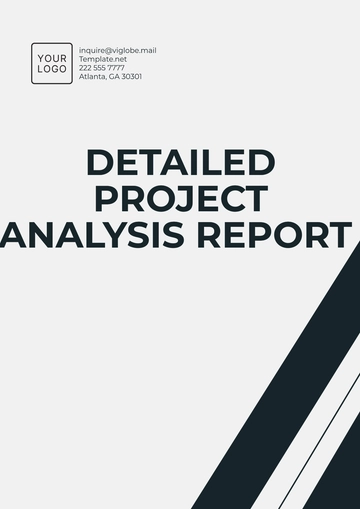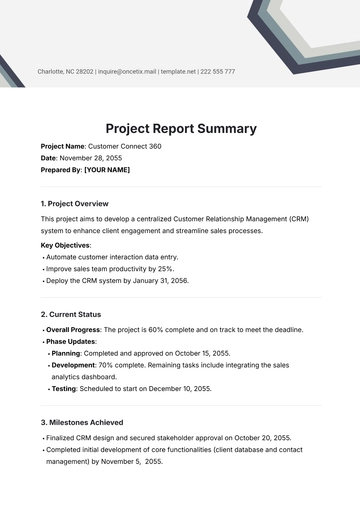Free Compliance Project Report
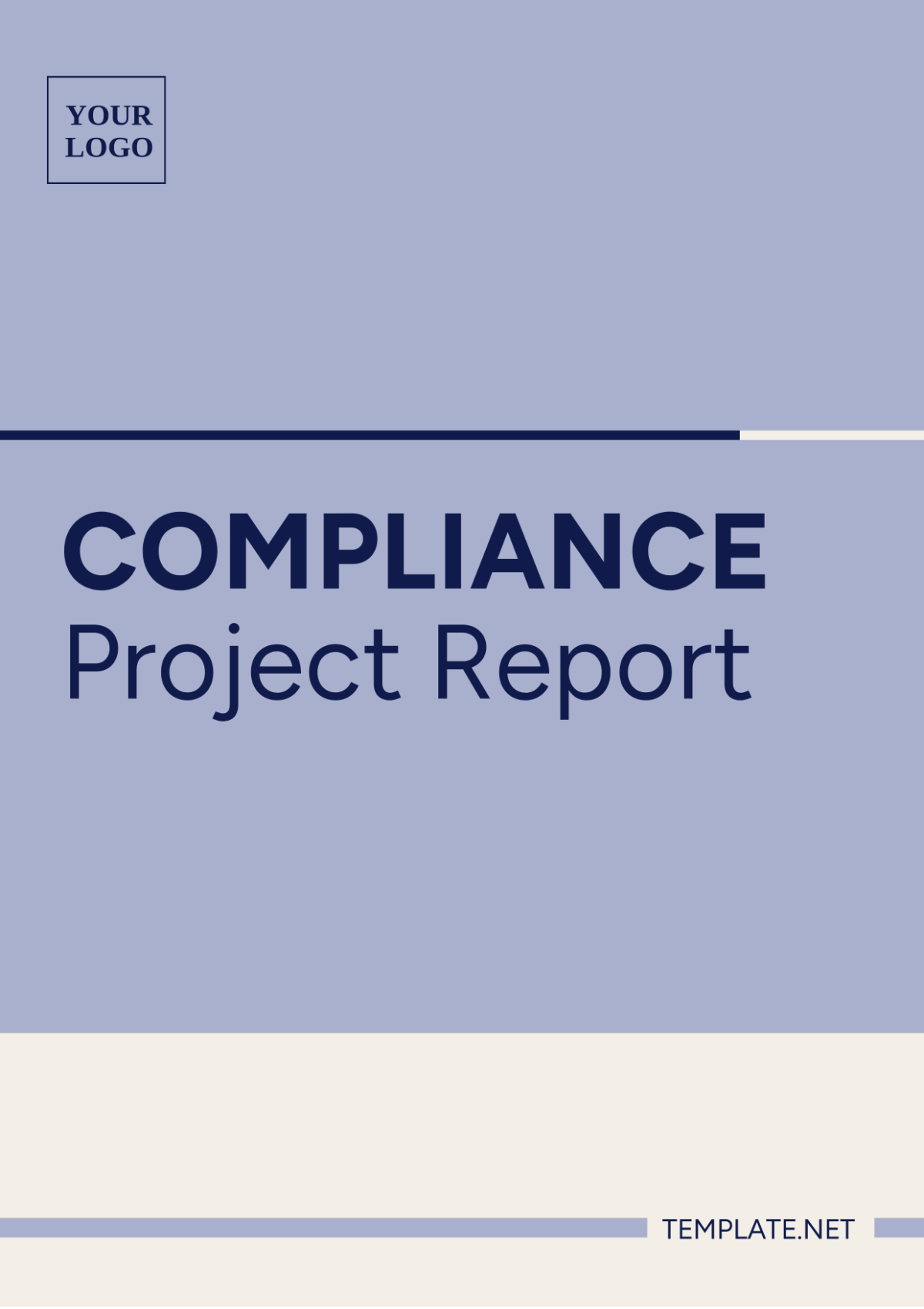
Project Title: [Enter Project Title]
Date: [Enter Date]
Project Manager: [Your Name]
1. Project Overview:
The compliance project's goal is to evaluate and enhance the organization's compliance with regulations and policies. This involves reviewing current practices, spotting non-compliance or improvement areas, and suggesting enhancements. This project is essential for maintaining legal operations, reducing compliance risks, and fostering a compliance culture.
2. Project Status:
Not Started
In Progress
Completed
3. Key Milestones:
Milestone 1: Project initiation and planning completed
Milestone 2: Compliance assessment conducted
Milestone 3: Compliance recommendations drafted
Milestone 4: Stakeholder feedback incorporated
Milestone 5: Final Compliance Project Report completed
4. Project Findings:
Compliance Gap Analysis:
Identified several areas where current practices do not fully meet regulatory requirements.
Risk Assessment:
Identified high-risk areas requiring immediate attention, including data protection and financial reporting.
Training Needs:
Identified a need for enhanced compliance training programs for employees.
Documentation Review:
Found inconsistencies in compliance documentation and recommended a centralized document management system.
Monitoring and Reporting:
Identified gaps in monitoring and reporting mechanisms, suggesting the implementation of automated tools for better tracking.
5. Compliance Recommendations:
Enhanced Training Programs:
Develop and implement comprehensive compliance training programs for all employees, focusing on areas of non-compliance and high-risk activities.
Policy and Procedure Updates:
Review and update existing compliance policies and procedures to reflect current regulatory requirements and organizational practices.
Document Management System:
Implement a centralized document management system to ensure consistent and accurate record-keeping of compliance-related documents.
Monitoring and Reporting Tools:
Invest in automated tools for monitoring and reporting compliance activities to enhance visibility and accountability.
Regular Compliance Audits:
Conduct regular compliance audits to identify and address any new compliance risks or issues.
6. Next Steps:
Implementation Plan:
Develop a detailed implementation plan for the recommended actions, including timelines, responsible parties, and resources required.
Training Rollout:
Begin rollout of enhanced compliance training programs, starting with high-risk areas and key personnel.
Policy Updates:
Review and update compliance policies and procedures in line with the recommendations, ensuring alignment with regulatory requirements.
Document Management System Implementation:
Initiate the implementation of a centralized document management system, starting with the migration of existing documents.
Monitoring and Reporting Tools Implementation:
Identify and implement suitable automated tools for monitoring and reporting compliance activities.
Compliance Audit Schedule:
Establish a regular schedule for compliance audits and assign responsibilities for conducting them.
Stakeholder Communication:
Communicate the findings, recommendations, and next steps to all stakeholders, ensuring transparency and accountability.
7. Stakeholder Sign-off:
Stakeholder 1: [Name]
Stakeholder 2: [Name]
Stakeholder 3: [Name]
8. Attachments:
Compliance Project Plan
Compliance Project Schedule
Compliance Project Budget
9. Comments/Notes:
It is crucial to ensure that all recommendations are implemented in a timely manner to enhance compliance and mitigate risks.
Regular monitoring and reporting of compliance activities are essential to track progress and identify any new compliance issues.
Stakeholder engagement and communication are key to the success of the compliance project.
Continuous review and updating of compliance policies and procedures are necessary to adapt to changing regulatory requirements and business practices.
Training programs should be tailored to the specific needs of different departments and roles within the organization.
10. Approval:
Approved
Not Approved

[Date Signed]
- 100% Customizable, free editor
- Access 1 Million+ Templates, photo’s & graphics
- Download or share as a template
- Click and replace photos, graphics, text, backgrounds
- Resize, crop, AI write & more
- Access advanced editor
Our Compliance Project Report Template is crucial for documenting and communicating compliance project details. Customizable and user-friendly, this template covers project objectives, milestones, progress updates, and more. Downloadable and printable, it's perfect for ensuring transparency and accountability in compliance projects. Editable in our AI Editor Tool, tailor it to fit your specific project needs effortlessly.
You may also like
- Sales Report
- Daily Report
- Project Report
- Business Report
- Weekly Report
- Incident Report
- Annual Report
- Report Layout
- Report Design
- Progress Report
- Marketing Report
- Company Report
- Monthly Report
- Audit Report
- Status Report
- School Report
- Reports Hr
- Management Report
- Project Status Report
- Handover Report
- Health And Safety Report
- Restaurant Report
- Construction Report
- Research Report
- Evaluation Report
- Investigation Report
- Employee Report
- Advertising Report
- Weekly Status Report
- Project Management Report
- Finance Report
- Service Report
- Technical Report
- Meeting Report
- Quarterly Report
- Inspection Report
- Medical Report
- Test Report
- Summary Report
- Inventory Report
- Valuation Report
- Operations Report
- Payroll Report
- Training Report
- Job Report
- Case Report
- Performance Report
- Board Report
- Internal Audit Report
- Student Report
- Monthly Management Report
- Small Business Report
- Accident Report
- Call Center Report
- Activity Report
- IT and Software Report
- Internship Report
- Visit Report
- Product Report
- Book Report
- Property Report
- Recruitment Report
- University Report
- Event Report
- SEO Report
- Conference Report
- Narrative Report
- Nursing Home Report
- Preschool Report
- Call Report
- Customer Report
- Employee Incident Report
- Accomplishment Report
- Social Media Report
- Work From Home Report
- Security Report
- Damage Report
- Quality Report
- Internal Report
- Nurse Report
- Real Estate Report
- Hotel Report
- Equipment Report
- Credit Report
- Field Report
- Non Profit Report
- Maintenance Report
- News Report
- Survey Report
- Executive Report
- Law Firm Report
- Advertising Agency Report
- Interior Design Report
- Travel Agency Report
- Stock Report
- Salon Report
- Bug Report
- Workplace Report
- Action Report
- Investor Report
- Cleaning Services Report
- Consulting Report
- Freelancer Report
- Site Visit Report
- Trip Report
- Classroom Observation Report
- Vehicle Report
- Final Report
- Software Report
